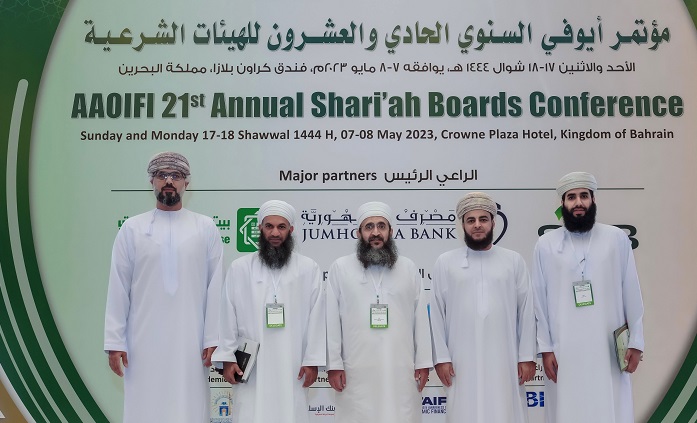
Muscat: As part of Alizz Islamic Bank’s ‘Empowering the Second Line of Sharia Supervisory Board Members’ Programme to nurture potential candidates for future roles, the two interns from the Office of the Grand Mufti of the Sultanate of Oman participated in the Accounting and Auditing Organisation for Islamic Financial Institutions (AAOIFI) conference held in the Kingdom of Bahrain.
The conference was attended by members of the Sharia Supervisory Board of the bank as well as the Sharia Compliance and Audit Department.
The annual AAOIFI conference is of vital significance within the Islamic financial industry. It serves as a platform to address crucial issues and developments in the industry. The conference aims to enhance the state of the global Islamic financial industry, foster innovative opportunities, and facilitate its expansion worldwide. It also focuses on preserving the industry's authenticity and adherence to Sharia principles. The event featured over 35 speakers, including Sharia scholars, policymakers, and professionals in the field of global Islamic banking and finance, engaging in detailed discussions on a wide range of important topics.
Issa bin Salim Al Riyami, Head of the Sharia Audit & Compliance Department said, "Conferences of this nature hold significant value in achieving harmony between international Islamic financial practices and the financial reporting of local financial institutions. They ensure adherence to the provisions and principles of Islamic Sharia while providing essential guidance for the operations of Islamic financial markets and the preparation of financial reports in an appropriate manner. These conferences also play a crucial role in establishing standards for Islamic financial institutions, thereby supporting the growth and advancement of the industry.”
In the context of his speech, Al Riyami also highlighted that these conferences aim to enhance the quality of auditing and governance practices in Islamic financial institutions. Stating, “Efforts are directed towards improving the standardisation of these practices through the development and issuance of standards in auditing and governance, along with their interpretation for these institutions. Furthermore, ethical practices about the activities of Islamic financial institutions are targeted for improvement by the preparation and issuance of ethical charters, accompanied by their interpretation for these institutions.”
AAOIFI is an influential international non-profit organisation that plays a crucial role in supporting Islamic financial institutions. Established in 1991 and headquartered in the Kingdom of Bahrain, it has achieved notable professional milestones including issuing over 100 standards in the fields of Islamic accounting, auditing, work ethics, and governance. These standards include Sharia standards that have been adopted by central banks and financial authorities in several countries as mandatory or recommended guidelines. The authority has support from various member institutions, including central banks, regulatory bodies, financial institutions, accounting and auditing firms, and legal offices from over 45 countries. Currently, AAOIFI’s standards are implemented by most leading Islamic financial institutions worldwide, contributing to a higher level of consistency in Islamic financial practices worldwide.